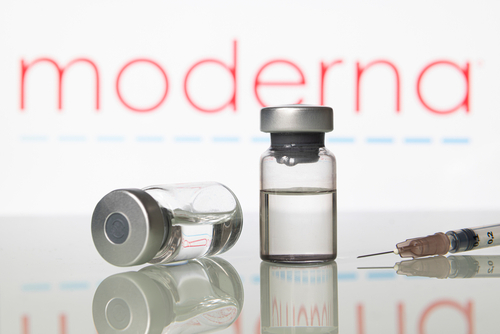
Moderna, Inc. will expand its vaccine efforts with three new development programs targeting mRNA vaccines for HIV, Nipah, and four seasonal flu viruses.
The company also intends to expand its respiratory syncytial virus (RSV) vaccine program to older adults.
This is thanks to the biotechnology company’s clinical successes with its COVID-19 vaccine. Currently, Moderna has 24 mRNA development programs, 13 of which have entered the clinical stage.
“The uniquely challenging year of 2020 for all of society proved to be an extraordinary proof-of-concept period for Moderna,” Stéphane Bancel, Moderna CEO, said. “Even as we have shown that our mRNA-based vaccine can prevent COVID-19, this has encouraged us to pursue more-ambitious development programs within our prophylactic vaccines modality. Today we are announcing three new vaccine programs addressing seasonal flu, HIV, and the Nipah virus, some of which have eluded traditional vaccine efforts, and all of which we believe can be addressed with our mRNA technology.”
The flu program will target both type A and B versions of the seasonal flu, which tend to spur epidemics of varying strength each year. The World Health Organization (WHO) estimates between 290,000 to 650,000 people die of flu-related respiratory illness each year. In the United States alone, the flu’s economic burden reaches approximately $11 billion each year. Moderna will pursue combination vaccines for the flu, SARS-CoV-2, RSV, and human metapneumovirus (hMVPV), using a first-generation flu program to evaluate multiple candidates with multiple antigen combinations of these four viruses. Phase one trials should begin this year.
As to the HIV vaccine, Moderna is currently evaluating two options: mRNA-1644, a collaboration with the International AIDS Vaccine Initiative and the Bill and Melinda Gates Foundation that aims to elicit broad neutralizing HIV-1 antibodies, and mRNA-1574, a product that uses multiple native-like trimer antigens and is being evaluated with help from the National Institutes of Health. Both should begin phase one testing this year. HIV notably causes AIDS, a progressive illness without a cure. HIV affects 38 million people worldwide, and approximately 690,000 people die annually as a result.
Finally, Moderna has developed a Nipah virus vaccine in collaboration with the NIH Vaccine Research Center. While no timeline for testing has been given, the possibilities for a Nipah vaccine could be sizable since the zoonotic virus causes deaths in between 40 and 75 percent of those infected. Severe respiratory and neurologic complications of the virus have no treatment other than intensive supportive care.
Beyond this, the company has also signed advance purchase agreements to deliver its COVID-19 vaccine, from which it expects to generate $11.7 billion in revenue. Doses of the vaccine are expected to be delivered throughout the year, and additional advance purchase agreements are being pursued for deliveries both this year and 2022.

